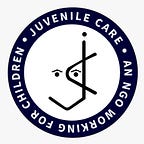Scotland’s Path-Breaking Free Provision Bill
By:Sangathya
With talks sparking up about how sanitary products are an essential provision and how we can eliminate the stigma associated with periods in general, Scotland emerges as the pioneer of the field as it passes the Free Period Products Bill, which will not only provide the women and girls of the country with essential products like this in the time of a crisis with the poverty levels rising due to Covid but also challenges the stigma around periods through a campaign called ‘Let’s Call Periods, Periods’.
According to Scottish parliamentary member Monica Lennon, who has been spearheading the campaign for the past four years and introduced the Bill in April 2019, the goal is to eliminate “period poverty”. After the passing of the bill, the sanitary products will be made available in public buildings including schools and universities across Scotland. The new rules stipulate that the local authorities are required to ensure the free availability of the products. The MSP further said that periods don’t stop for pandemics and the work to improve access to essential tampons, pads and reusables has never been more important. The Labour MP, who is said to be working to tackle period poverty since she was elected in 2016, said, “On the issue of period dignity, I am beyond proud that Scotland is leading the way and we have moved at a fast pace in a short space of time.” Lennon further said that Scotland will not be the last country to make period poverty history. She said that the new rule was a signal to the world that free universal access to period products can be achieved.
The campaign is backed up with £15 millions of investment and it has ensured that over half a million individuals in Scotland now have access to free period products.
The main aim of the government is said to be how nobody should miss out on learning because they cannot afford period products so they are supporting 400,000 younger people who menstruate by ensuring they have access to products in every school, college and university across the country.
The Scottish Government is also working with councils to make sure products are freely available in a range of community settings across Scotland such as local libraries and town halls.
The work has been nothing less than ground-breaking. That work includes addressing the concerns in the legislation proposed, such as what a universal scheme offering a variety of products would look like, what the impact of losing local flexibility would be, and what it would cost to the public purse. In the coming year it plans to improve current services and availability of period products, including introducing an app that will provide information on where free products can be accessed and support more employers who want to provide free products.
The Scottish government is at the forefront of this work but all this would not have been possible without the many individuals and organizations who are talking about periods and removing the stigma and ensuring free products are available in their communities and in their work places.
Together they are changing minds, changing cultures and delivering fairness through collective action, ensuring cumulatively, they are making Scotland a global leader in providing free period products.
“That is a gender-equal Scotland, where no one has to go through the indignity of using unsuitable materials to mask their periods or stretch household budgets further to buy products for their children, or miss out on education — a Scotland where no one has to hide a tampon up their sleeve,” Aileen Campbell, Scotland’s cabinet secretary for Communities and Local Government said.
Hey Girls, an East Lothian-based social enterprise company set up to tackle period poverty, will be a major provider in the initiative. The company, which launched in January this year, is supplying sanitary products directly to a number of local authorities including the City of Edinburgh council, Glasgow city council, South Lanarkshire council, West Lothian council and Stirling council, as well as Glasgow Caledonian University. It is also the main provider of menstrual products to Fareshare, which will distribute them to communities across Scotland. Celia Hodson, the founder of Hey Girls, said the move marked “a real milestone in the fight against period poverty”.
Making period products widely available to all women and girls is imperative for breaking the taboos, promoting women’s health and empowering women overall. Girls shouldn’t have to stay at home and miss school because they are on their periods. Women shouldn’t be seen as less capable workers because they have periods. As a Scottish parliamentarian put it, “Why is it in 2020 that toilet paper is seen as a necessity but period products aren’t?” This has to change and period products should be made available free of cost as much as possible. This is what the Scottish Government is planning on achieving as well.
The bill was passed with a majority of 121–0 in the legislature in Edinburgh and the passing of the legislation is “a significant moment for gender equality” according to Aileen Campbell, the Communities Secretary. And Rose Caldwell, chief executive of the charity Plan International U.K., said that with this legislation, “Scotland could soon become the first country in the world to eliminate period poverty once and for all, and with household finances under strain from the coronavirus restrictions, the need has never been greater.”
